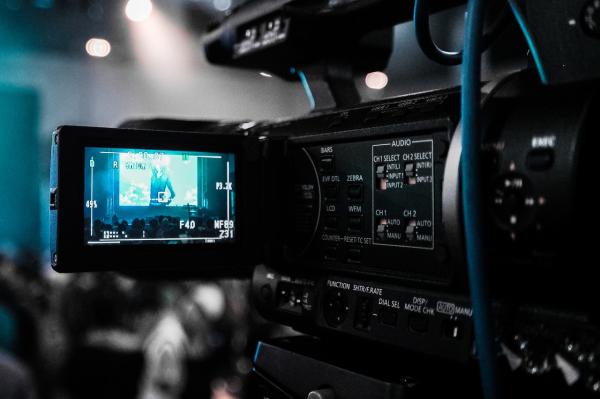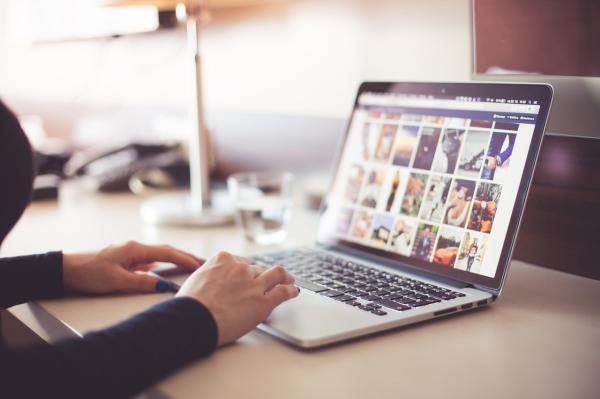Are Movie Screenshots Copyrighted?


Copyright is the legal right that the judiciary of a country creates to protect original works from theft. When you create something, you become its owner and possess exclusive rights for its distribution and use. Although copyright is valid for a limited period only, it is illegal to use the work of someone else without your permission for your own profit. However, copyright is not exclusive and is limited by exceptions of fair use. If you are planning to use a movie screenshot for your personal use, are those movie screenshots copyrighted? Read this oneHOWTO article to find more information on often grey area of fair use copyright issues.
Info on Copyright
Using movie screenshots for personal and private use is a common practice these days. You can easily find a screen grab of your desired movie on online search engines, save it on your device and use it the way you want. But there is a blurred line on copyright infringement and fair use of such images. Courts are not able to set clear lines of fair use because some creative works can be infringed for promotional purposes and the doctrine cannot be applied consistently. The issue is very flexible and can be an extremely unsettling area of law. This leaves an unclear field to ponder over fair use of movie screenshots.
Note on screenshots: screenshots or screen grabs are when you take save the image displayed on a screen, whether from a smartphone, tablet, computer or any other device. These can simply be images of your OS menu, but if you are playing a movie on such a device, you can also take a screenshot and have an image of one of the frames of the movie or film.
Copyright Violation of Movie Screen Grabs
First of all, you should understand the difference between copyright violation and plagiarism. When you use a movie’s screen grab and claim it was taken by yourself, then it is called plagiarism. Plagiarism is when you take the idea or creation of somebody else and pass it off as your own.
On the other hand, copyright infringement is when you take an idea or creation of somebody else and use it without their permission. The difference between the two can be difficult to figure out. As a result, fair use is basically determined as per individual situation on a case-by-case basis. In the case of using a movie screenshot, even if you are using a screen grab from an open-source, if someone owns the copyright, it may or may not be interpreted as fair use.
Definition of Fair Use
‘Fair Use’ applies when you grant exclusive right of a screen grab to the owner of the image. According to law, it is not illegal to use a movie screenshot without getting permission from its owner, but with certain limitations. You are allowed use them for a variety of purposes, such as teaching, news reporting, criticism, commentary, scholarship, library archiving, parody, etc.
Any screenshot can be incorporated into an author’s work under the 4-factor balancing test. Fair use is applicable only on copyrighted screenshots. As a general rule, any screenshot that is not copyrighted can be used in the public domain. In order to identify fair usage of a copyrighted movie screenshot, you need to evaluate it under 4-factor balancing test.
The four factors that need to be considered are:
- Character and purpose of using the screenshot
- Nature of the screen grab with copyright
- The amount of the copyrighted portion used
- The effects of using the screenshot on potential market
Copyright laws are stringent if you are using the screen grab for a commercial purpose, but are generally lenient if you are using it for non-profit or for educational reasons.

Understanding The Four Factors Involved
Now that you know the factors to be considered while understanding copyright issues, here is a breakdown of these four factors:
Character and purpose of use
Using a copyrighted screenshot comes under fair use if you are using it for educational, news reporting, research, criticism and other such fair purposes. This generally covers a variety of blogs, schools, newspapers, magazines, news channels and others. However, you need to consider the other three factors also. If you are using the screenshot to gain some profit or earn money, then it is most likely to come under plagiarism and copyright violation.
Nature of the copyrighted movie screenshot
Since copyright does not apply to the idea of the movie but the screenshot itself, the less creative it is, the more freedom it has to be fairly used by others. However, if the idea is not protected, this doesn’t mean that the arrangement is also free to use. The more factual and less creative it is, the more likely it is to be used for fair use.
The amount of the copyrighted portion used
This is one of the vaguest factors to consider. There is no hard line and limit upon how much material you may copy. But considering the easy availability of movie screenshots through Internet, and the widespread nature of sharing and replication, this factor is quite relevant for screen grab usage. Images are fixed, and have less chances of being used partially. But screenshots can be used to highlight certain parts of the picture as well. They may be used fairly to make a parody or for other such purposes.
Extent of effect upon its value
If you are using a movie screen grab for commercial or monetary profit, then you are least likely to stay protected under the laws of fair use. Courts seek balance between public welfare and general benefit and the rights of the movie owners. So, there is often a little wiggle room here. If you are earning gain with the image and the movie owner is not getting benefit from it, and even getting harmed by it (via loss of revenue), then the court is more likely to favor the rights holder.
Using Movie Screenshots On Websites
Movie producers, studios and PR agencies send out movie stills for promotional purposes. When they do this, they make the screen grabs openly available for use in television, print media and online. In earlier days, they used to send out printed press kits, but today, everything has gone digital.
The best idea is to never copy images from any third party site. Always try to access mailing lists of original sources. Creating your own movie screenshot with illegal access will drag you into legal trouble. The sole aim of distributing movie screen grabs is to let them be used, but there is certain implied consent that everyone needs to follow for fair use. Movie screenshots that are designed for profit are sold to publishers, syndicates and websites to be used at their discretion.
With the rise of social media, many individuals use screenshots or screen grabs of movies to post on their feeds. As, generally, individuals are not making money directly from these posts, it is usually considered fair use.
Conclusion
It’s likely that using a movie screenshot to comment, criticize or educate is deemed to be of fair use. But if you are using it for money or your own profit, then you are likely violating fair use limits. If you are using the screenshot for direct profit, then you are probably breaking the law. Copyright law is not enforced when someone is browsing over the Internet and saving images from there. As far as copyright laws are concerned, money is the most important driving factor.
If your image has not affected the earnings of the movie and if you are not directly making money from it, then you probably won’t be sued. And even if you are challenged, you will be simply asked to remove the images and stop using them. Refusal to do so will probably attract legal action from the rights holder. So, if you are going to use movie screenshots for your personal use without any commercial intention, then feel free to use them without violating the law, unless and until you are using them for commercial purposes.
If you want to read similar articles to Are Movie Screenshots Copyrighted?, we recommend you visit our Culture & Society category.







